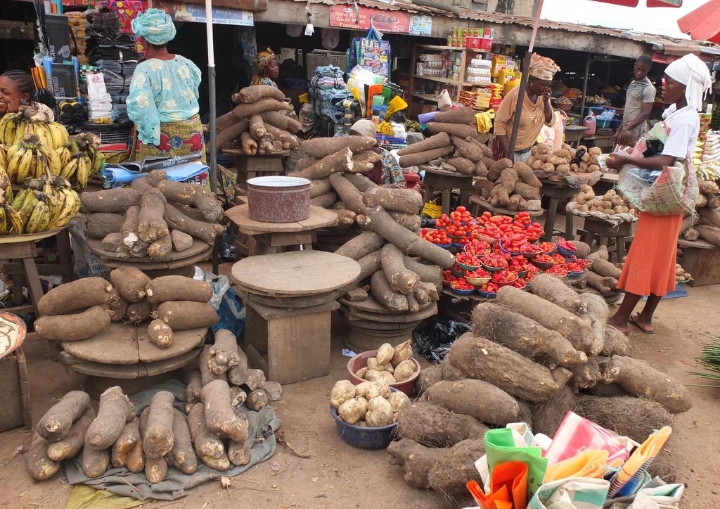Two church leaders in the United States have been arrested in an alleged multi-million-dollar conspiracy after multiple Federal Bureau of Investigation raids across the country on Wednesday, including one in Hillsborough County’s exclusive Avila neighborhood.
In a statement issued via its website on Wednesday, the U.S. Department of Justice said Michelle Brannon, 56, was arrested at a mansion near Tampa, while David Taylor, 53, was arrested in North Carolina over allegations of multi-million dollar money laundering, forced labour and human trafficking.
According to the DOJ, Taylor and Brannon are the leaders of Kingdom of God Global Church, formerly known as Joshua Media Ministries International.
The Justice Department said Taylor referred to himself as “Apostle” and to Brannon as his Executive Director.
FBI officials said law enforcement arrested Brannon early Wednesday at 706 Guisando De Avila in Hillsborough County, which is owned by the church, according to property records.
READ ALSO:Suspected Cultists Invade Rivers Compound, Rob Students, Residents
Investigators arrested Taylor on Wednesday morning in North Carolina, while SWAT and FBI agents also raided a hotel owned by the church in Houston.
A 10-count indictment alleged that Taylor and Brannon ran call centres in Florida, Texas, Missouri, and Michigan to solicit donations to the church.
The pair convinced their victims to work at the call centres and work for Taylor as personal servants – referred to as “armour bearers” – for long hours without pay, according to the indictment.
Federal investigators said Taylor and Brannon “controlled every aspect of the daily living of their victims,” who slept at the call centre or in a “ministry” house and were not allowed to leave without permission.
The indictment also says the suspects forced the victims to transport women to Taylor and ensure that those women took Plan B emergency contraceptives.
READ ALSO:US Court Fines Nigerian Blogger $50,000 For Defaming MFM G.O.
The church received about $50 million in donations through its call centres dating back to 2014, according to the DOJ.
Taylor and Brannon are accused of using much of that money to buy luxury properties, luxury vehicles, and sporting equipment such as boats, jet skis, and ATVs.
Taylor and Brannon face charges of forced labour, conspiracy to commit forced labour, and conspiracy to commit money laundering.
Each alleged crime carries a maximum sentence of 20 years in federal prison.
A federal grand jury in the Eastern District of Michigan returned a 10-count indictment against two defendants for their alleged roles in a forced labour and money laundering conspiracy that victimised individuals in Michigan, Florida, Texas, and Missouri.
READ ALSO:US Court Rules Twitter Breached Contract Over Failure To Pay Bonuses
Assistant Attorney General Harmeet Dhillon of the Justice Department’s Civil Rights Division said the two defendants were arrested in North Carolina and Florida in a nationwide takedown of their forced labour organistion.
“Combating human trafficking is a top priority for the Department of Justice.
“We are committed to relentlessly pursuing and ending this scourge and obtaining justice for the victims,” he said.
Also speaking, U.S. Attorney Jerome Gorgon Jr. for the Eastern District of Michigan, said, “We will use every lawful tool against human traffickers and seek justice for their victims.
“A case like this is only possible through a concerted effort with our federal partners across the country and the non-governmental agencies who provide victim support. We thank them all.”
READ ALSO:US Court Fixes Date For Sentencing Cyber Fraudster, Hushpuppi
“The indictment of David Taylor and Michelle Brannon demonstrates the FBI’s steadfast efforts to protect the American people from human exploitation and financial crimes, including forced labour and money laundering.
“The alleged actions are deeply troubling. I want to thank the members of the FBI Detroit Field Office, with strong support from our federal and agency partners in the FBI Tampa Field Office, FBI Jacksonville Field Office, FBI St. Louis Field Office, FBI Charlotte Field Office, FBI Houston Field Office, and the Detroit IRS-CI Field Office, in addition to several local, county and state law enforcement partners, for their role in executing this multi-state operation.
“The FBI in Michigan will continue to investigate those who violate federal law and remain focused on ensuring the protection and safety of our nation,” said Acting Special Agent in Charge Reuben Coleman of the FBI Detroit Field Office.
“Money laundering is tax evasion in progress, and in this case, the proceeds funded an alleged human trafficking ring and supported a luxury lifestyle under the guise of a religious ministry.
“IRS-CI stands committed to fighting human trafficking and labor exploitation, and pursuing those who hide their profits gained from the extreme victimization of the vulnerable,” said Special Agent in Charge Karen Wingerd of IRS Criminal Investigation, Detroit Field Office.
READ ALSO:My Husband Fought, Abandoned Me Cos’ I’m Barren, Woman Tells Court
According to the DOJ, conspiracy to commit forced labour carries up to 20 years’ imprisonment and a fine up to $250,000, while forced labour carries up to 20 years’ imprisonment and a fine up to $250,000.
It noted that conspiracy to commit money laundering carries up to 20 years’ imprisonment and a fine up to $500,000 or twice the value of the properties involved in the money laundering transactions.
It was gathered that Brannon appeared in federal court in Tampa on Wednesday afternoon, but an attorney for Brannon wasn’t present.
A judge asked where her attorney was and whether she had representation.
Brannon told the judge that she had two private attorneys, out of St. Louis and Oklahoma, who were already working with them. However, she said she hadn’t heard from either of them.
The judge said the attorneys were not able to be reached through the phone numbers provided to federal prosecutors. It’s not clear if Brannon has legal representation at this point.
The judge continued Brannon’s hearing to Thursday afternoon. He instructed Brannon to find an attorney in the Tampa area in the meantime.
